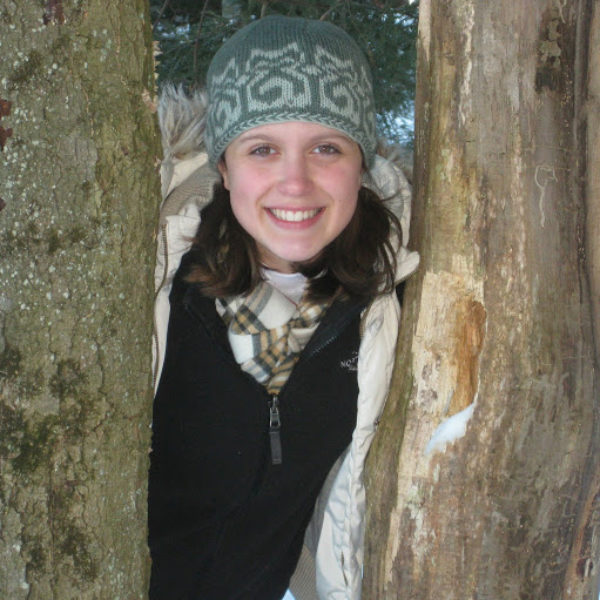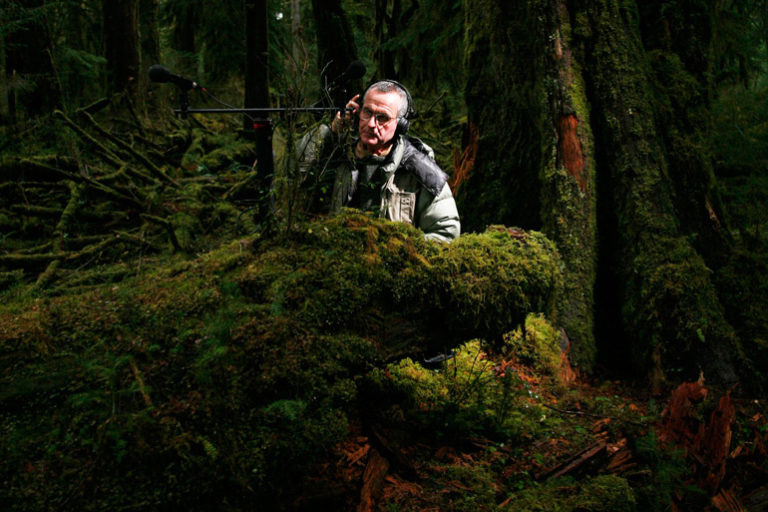
Image by Juan Gonzalez.
Silence and the Space to Be Amazed
Try this: after you’re done reading this sentence, stop and listen to where you are right now. If you’re in a room in a house, can you hear other people moving around? The TV? The furnace kicking in? Expand your perception to outside. Can you hear any cars? The wind blowing through the trees? Dogs barking? Are you sitting here in complete silence? Can you hear yourself reading this sentence in your head right now?
When was the last time you listened to silence?
“Silence is an endangered species,” says Gordon Hempton, an acoustic ecologist who traveled the world for over 25 years to find and record places completely free from manufactured noise. I think that statement holds real truth. At the same time, I believe that silence can be found anywhere, if you listen for it.
What is the purpose of silence? Of engaging in the act of being silent? Of creating silence with another person? I think it has something to do with slowing down, noticing where you are, who you’re with, and what you’re doing, and being absolutely consumed with amazement; if only for a small moment in time.
Sitting in rocking chairs on the cabin porch, reading and drinking hot chocolate as the sun rises over the fir trees. It is silent, except for the songs of the sparrows, mourning doves, and robins. The air is still, and dew drops glisten on the blades of grass under our feet as we walk together towards the creek.

Our silence creates space to listen. Our listening creates space to take notice. Our noticing creates space for amazement. It is our amazement that gives us the energy to create change, whether that be in ourselves, in other people, or in the world.
Being silent, listening, noticing, and telling what amazes you is a metaphor for the scientific method. All hypotheses are created by noticing something weird or awesome or crazy or wrong, and wanting to figure out why. Or in the case of noticing something wrong, wanting to figure out how to change it. We would not have the breadth of knowledge about the world and the way it works if people did not have the capacity to be silent and notice.
“Silence is not the absence of something but the presence of everything.” —Gordon Hempton
Being present. This is the hardest task to ask a ten-year-old to accomplish, especially when 40 of them are together walking up a mountain surrounded by big sticks to play with. But they did it. After three weeks of utter chaos, with kids yelling and running up to the site where we taught our natural history lesson, something finally clicked. Before entering the forest, we asked them to try being completely silent so they could have the chance to spot animals without scaring them away with their frenetic energy.
When the first person set foot on the trail became in tune with the all consuming sounds, sights, and smells of the pine forest, a kind of ripple effect occurred. Every student was mirroring the energy of the forest and each other as they walked silently up the mountain. They could hear squirrels scrabbling through leaves, woodpeckers knocking on hollow trees with their beaks, and blue jays sounding their alarm call through the canopy. They could smell the freshly fallen pine needles. They could see the sharp-shinned hawk shoot like an arrow through the canopy right above their heads.

They were silent, they were listening, they were noticing, and they were overwhelmingly amazed. And as a result, they were changed. Changed from a chaotic mess of noise and movement to a balanced and connected line of energy moving not against, but with the mountain.
“Listening is not about sound. Listening is about place.” —Gordon Hempton
Sometimes the act of noticing that silence is standing right in front of your face — waiting for you to embrace it — and it is really hard, even for people who are not ten years old. Our minds and thoughts stop us from being present. This is why seeking out silence is so important.
If we’re lucky, nature will hit us on top of the head with an acorn or in the eye with a branch as if to say, “Hey, I know you’re not paying attention and you’re eventually going to get hurt if you can’t shut up and listen.” In order to survive in the world, animals have to be masters at being silent and listening. Predators like mountain lions and tigers use silence to their advantage in order to stalk and kill prey, while deer and rabbits rely upon their ability to be silent and vigilant in order to detect predators.
But what about us? When do we ever silence our thoughts and just listen? As a society, we don’t prioritize silence. If everyone is trying to have their voices heard, to be the best, to be as productive as possible, or avoid pain, when will we have time to truly listen to another person, to be astonished at what is right in front of us right now, to be present with who we are, where we’ve been, and where we want to be?
The most beautiful thing about silence is that you can find it almost anywhere in small moments — even in the midst of the unavoidable noise in our daily lives.
Immersed in identifying plants and recording data, I work alongside seasoned ecologists on an experiment to figure out what is happening to the herbaceous layer when it is continually devoured by the booming deer population. I’m in the mountains of western Virginia, underneath a canopy of white oak trees with blueberry bushes brushing against my ankles as I walk from plot to plot, but my brain is distracted by the knowledge that the area is notorious for its resident rattlesnake population. For a moment though, something shifts. The wind suddenly picks up, I hear the rustling of the leaves above me become louder and louder as a gust of wind travels across the forest. I stop next to a striped maple sapling and look up at the dense canopy. My attention is captured by the patterns of swirling leaves and flecks of sun shining through them and onto my face. I look to my feet and notice how the ferns become dappled with sunlight as the clouds shift. I’m silent, I’m listening, I’m noticing. And I’m changed by amazement; if only for a moment.
I’m laying in the middle of a frozen lake surrounded by hemlock trees that stand like silent sentinels against an indigo sky, twinkling with stars. It is -2 degrees out. The air is completely still and all I can feel is the coldness of the frozen water beneath me. This is the closest I’ve ever come to experiencing the definition of true silence. Slowly and calmly, a light breeze begins to dance across the icy landscape. The tips of the hemlocks wave back and forth; distracted from their silence, but only for a moment. They become sentinels of the night again as the wind passes, dissipating like mist into the sky.
It only takes one moment of silence to listen, to notice, to be amazed.
What do we hear in these moments of silence? We hear each other, we hear ourselves, we hear the Earth.

